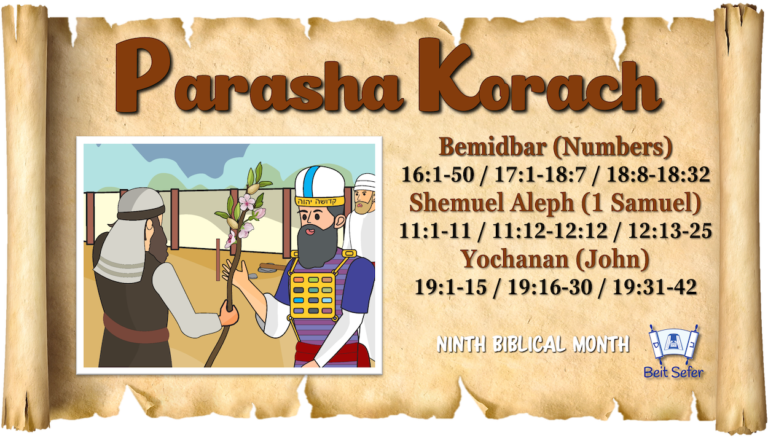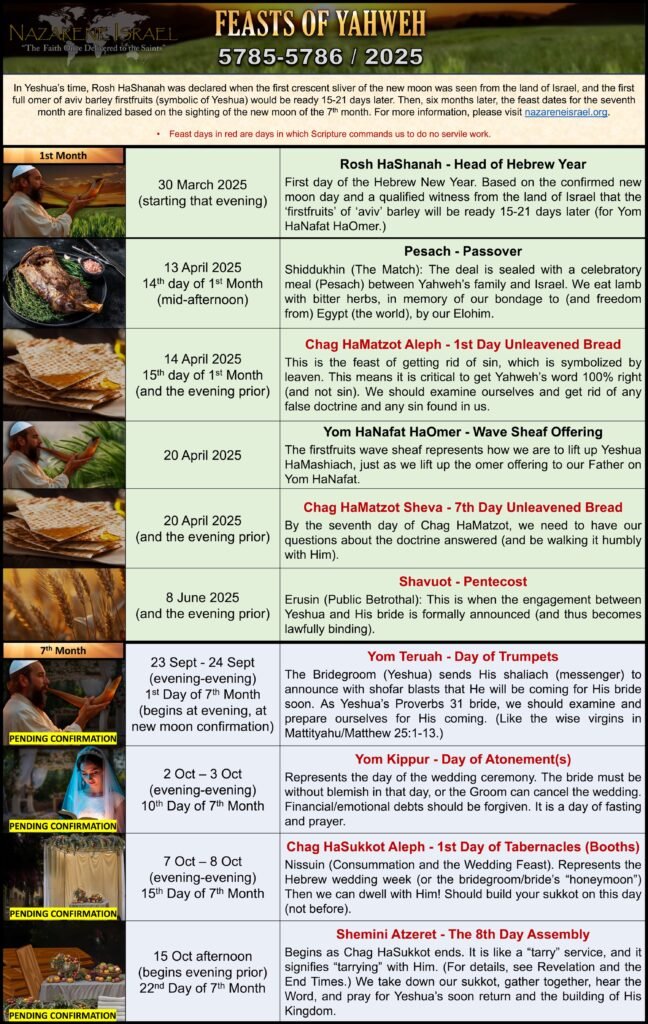Parasha Korach – Year 2 – Aaron’s Rod – Leadership and Service.
Shabbat Shalom, Nazarene family.
This week we will study the parasha Korach, portion of year 2, we will see that the election of Aaron and his lineage as priests is reaffirmed by the miracle of the flowering rod, demonstrating divine authority. The responsibilities and privileges of the Levites, who will assist the priests in the service of the Tabernacle, are also established. In this portion we will learn about the importance of order and obedience in worship, remembering that set-apartness and service to Yahweh are gifts and duties that must be carried with reverence.
Bemidbar (Numbers) 18:6-7
6 Behold, I Myself have taken your brethren the Levites from among the children of Israel; they are a gift to you, given by Yahweh, to do the work of the tabernacle of meeting.
7 Therefore you and your sons with you shall attend to your priesthood for everything at the altar and behind the veil; and you shall serve. I give your priesthood to you as a gift for service, but the outsider who comes near shall be put to death.”
This week corresponds to the reading of the texts (in bold):
- Bemidbar (Numbers) 16:1-50 / 17:1-18:7 / 18:8-18:32
- Shemuel Aleph (1 Samuel) 11:1-11 / 11:12-12:12 / 12:13-25
- Yochanan (John) 19:1-15 / 19:16-30 / 19:31-42
Summary of the weekly study, Year two:
Bemidbar (Numbers) 17:1-18:7
In these verses, divine authority and the order established by Yahweh in the spiritual leadership of Israel is taught. Elohim confirms Aaron as high priest through the miracle of the flowering rod, showing that the choice does not depend on man. The passage also details the specific functions of the priests and Levites in the Tabernacle, assigning them crucial roles in service and intercession for the people. In addition, it shows us the set-apartness of the priesthood, the need to obey Elohim, and respect for the divine structures, teaching about communion and faithful service in their work.
Shemuel Aleph (1 Samuel) 11:12-12:12
In these verses, Shemuel (Samuel) reaffirms Saul as king after he successfully leads the people in battle against the Ammonites. Subsequently, Shemuel gives a speech reminding the people of their history with Yahweh, emphasizing his faithfulness and Israel’s repeated rebellions. He warns of the consequences of rejecting Elohim by asking for a king, even though Yahweh has permitted this request. The central teaching shows the need to obey Elohim and trust Him as the true King, exhorting the people to serve Him faithfully, regardless of human structures of leadership.
Yochanan (John) 19:16-30
In these verses, the crucifixion of Yeshua is narrated, highlighting His sacrifice for humanity. Pilate delivers Yeshua to be crucified, and He is taken to Golgotha, where He is nailed to the cross or stake. During His agony, Yeshua shows compassion by entrusting His mother to the care of the beloved disciple. Finally, He declares “It is finished,” indicating that He has fulfilled His mission to redeem the world. This passage shows us Yeshua’s sacrificial love, the fulfillment of the prophecies and the culmination of the plan of salvation, inviting believers to trust in His redemptive work to receive eternal life.
–
Enjoy this fun activity with the whole family. Inside you will find development questions for the three weekly sections (Torah, Haftarah and Brit Chadashah). While the older ones discuss the questions and their answers, the younger ones can color the picture related to the teaching, solve a maze, find the 7 differences and much more. We encourage you to do it week by week and instill in your children the habit of studying Yahweh’s word as a family.
We hope you and especially your sons and daughters enjoy this effort. For it is through the study of the Scriptures that we can come to understand the love and care that Yahweh has always had for us. And also to perceive that He has been taking care of even the smallest detail, so that we can take care and enjoy all that He gives us. That is why it is so important that our children learn and grow up knowing that they are loved by the Creator of all that exists.
Shalom.
To view the Tanach studies, click here
To view the Brit Chadasha studies, click here




